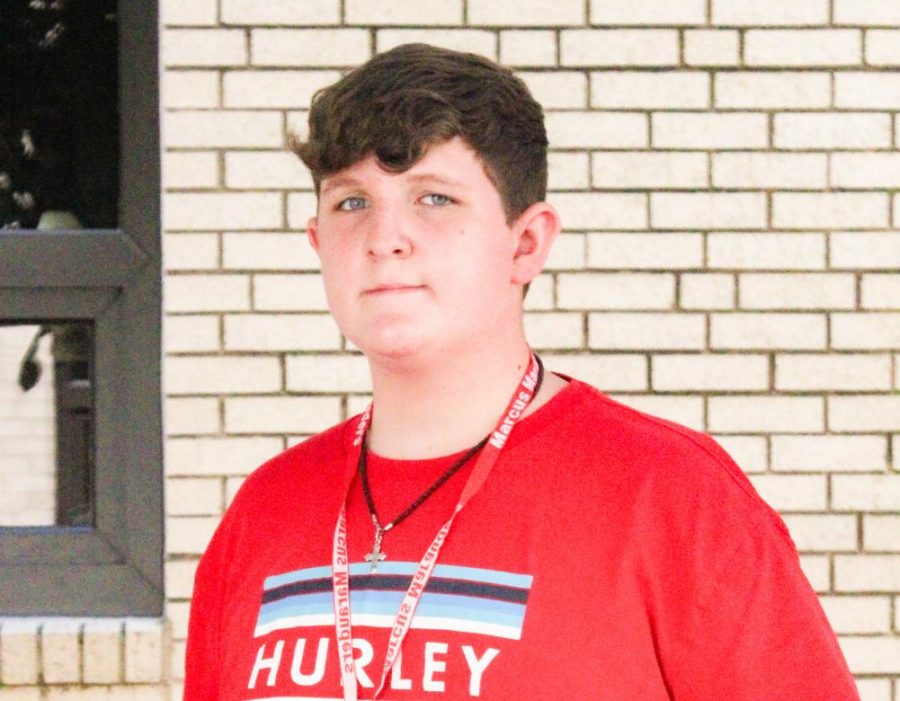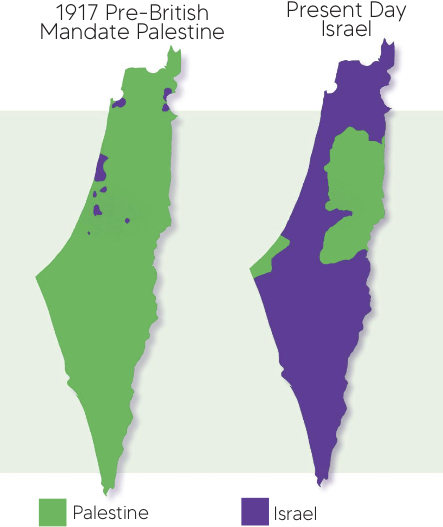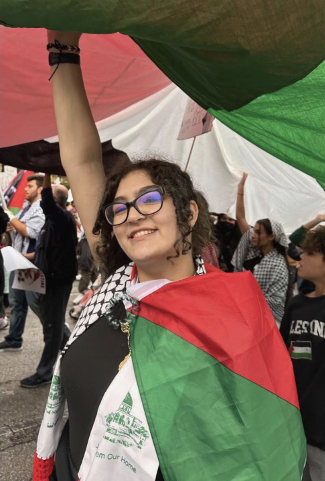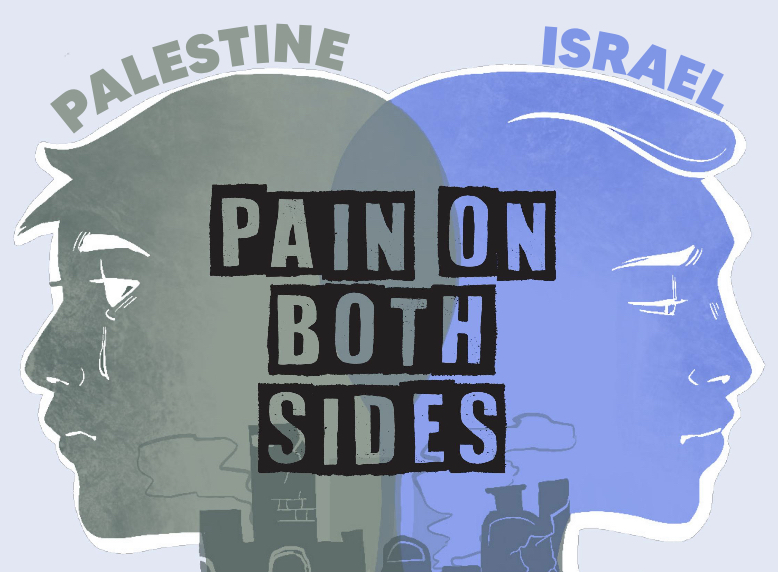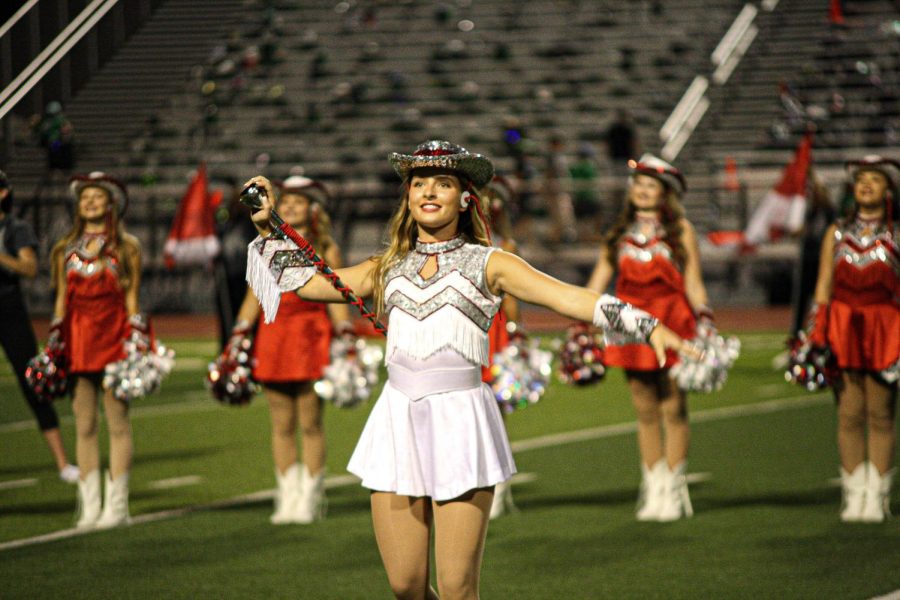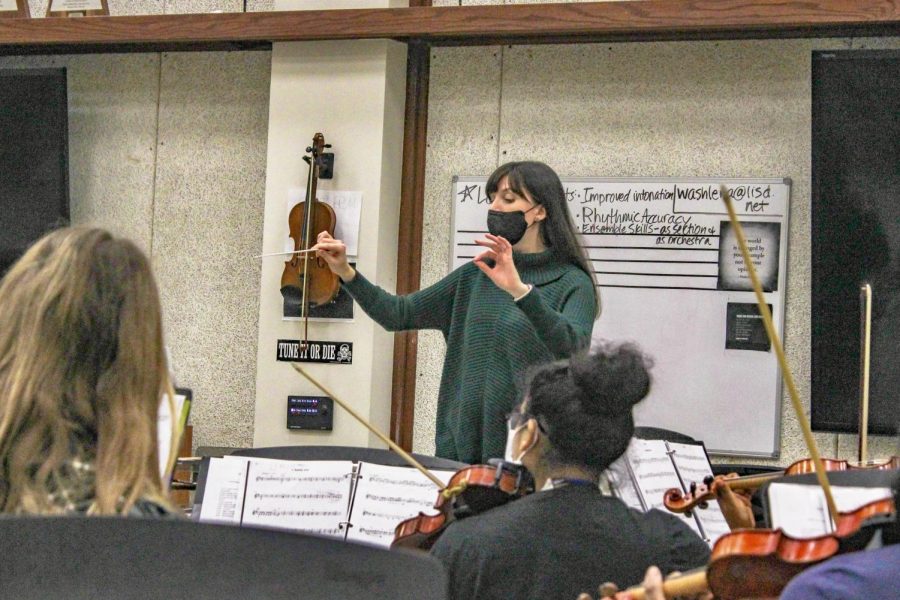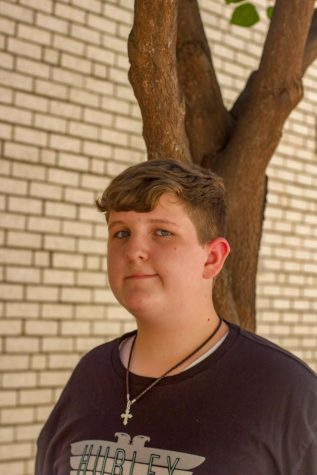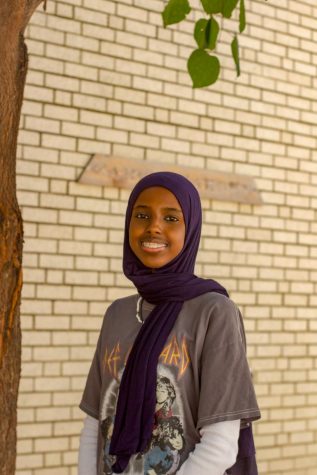Editor’s note: This column won second place for print personal columns in the 2022 ILPC contest. It also won excellent for print personal columns in the 2022 TAJE Best in Texas contest.
The locker room smelled of deodorant, cleaning chemicals, vape smoke and humiliation. Some sort of liquid was all over the floor, and the sounds of screaming and banging on lockers was deafening. I stood in one of the bathroom stalls, changing out of my football pads. I was an average sized 8th grader that stood at 5’8” and was bigger around the waist than some of the other athletes. I was tired and bruised from football practice, humiliated from the comments, and felt like I had failed myself.
The majority of the team didn’t seem to care about how I looked, but a group of seven or eight other guys wasted no opportunity to tell me how they felt. They would bang on the stall door as they walked by or yell sexually explicit things at me. Sometimes they’d even hop over the stall walls to watch me change. At random times throughout the day, they’d grab at my chest and neck so hard that it left bruises.
It slowly became clear how those guys saw me: a failure of an athlete that saw Athletics class as a time to relax. A human road block that took up half the hallway. Someone that inhaled food and water like a vacuum. And over time, I began to see myself that way too. I’d stand shirtless in front of a mirror after school, obsessing over the parts of my body that I didn’t like. The shape of my body and the way that people viewed me became the two things that I focused on the most.
My solution to this harassment was to wear up to three layers of clothes to hide my body. On the days that it was too hot to wear winter clothes, I walked into school petrified about wearing shorts and a t-shirt. And during the daily mile run in athletics, the powerful heat slowed me down. When I drank more water to relieve the heat, those same guys would tell me that I didn’t need it since I was going so slow.
Around six hours after the mile run was my lunch break. I was embarrassed to eat in front of other students, so I ate lunch in my counselor’s office every day. My daily time there consisted of having lunch and scrolling through Instagram. Though eating alone helped, the extra time online would only leave me feeling worse about how I looked.
I never had the body that other guys had on social media. My explore page would always be full of guys that looked like bodybuilders. If that type of body was so common, there could be no reason for how I looked besides laziness. Little did I know, even if everyone ate and exercised the same, we would all still have different bodies.
The COVID-19 lockdowns were a blessing in disguise. After the pandemic hit and we all spent five months away from campus, the comments about my body almost entirely stopped. The months that I spent away from campus led to me developing more confidence, and my mental health vastly improved.
When I joined the newspaper staff and became more involved in my JROTC unit, I came to realize something important. The people that bother to see past the physical appearance are the people that get to know you for who you are. The newspaper staff saw me for my writing experience and potential on the team. The JROTC unit saw me for my potential to instruct and lead the new cadets. And I began to see that potential in myself.
As much as I’d like to say that joining these tightly-knit groups helped me move past my insecurity overnight, I unfortunately don’t live in a stereotypical high school movie. Sophomore year entailed a long road of healing and soul-searching, longer than any mile I ran in Athletics. I’d still instinctively check my clothes throughout the day to make sure my body wasn’t showing. There also wasn’t a day that year that my arms weren’t covered. Through it all though, the friends that I made were always there to help, to talk to, or just to listen.
I’m now a junior, comfortably wearing shorts and t-shirts. I no longer feel the need to obsessively pull at my clothes, because though my friends see my outward appearance, they don’t see it as what defines me. They never make remarks about how I look, because it doesn’t matter to them.
It took me several years to realize that I have the right to exist, regardless of the body I live in. Every time I changed out of my gear in the stall, every time I let the comments ruin my day, every time I cowered in the counselor’s office during lunch, I allowed someone else to determine my value as a human. It doesn’t matter if you’re tall, short, skinny or large, the only person that can determine your value is you. The only thing that should matter should be living a healthy lifestyle.
It took me several years to realize that, but better late than never. It took hundreds of mile runs, a lot of tackles, gallons of sweat and just as much weight lifting, but I no longer feel like a failure. I still struggle with the trauma from those days, and it will likely be years until I’ve fully moved on. Though there’s many more miles to run until I get to that point, I think I’ll take them at my own pace.





